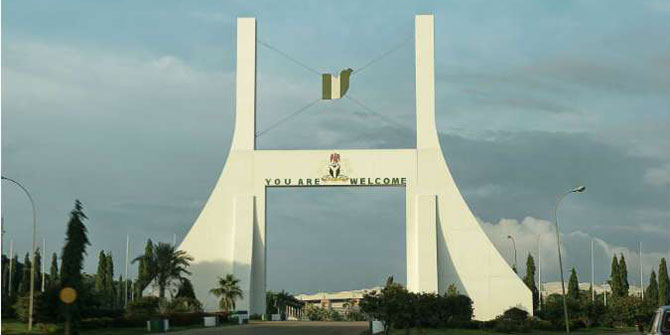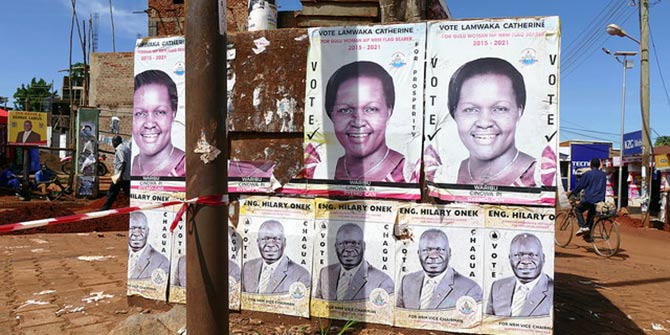Lakhdar Ghettas is the Stonex PhD Coordinator of the Maghreb Studies at the LSE IDEAS Centre for Diplomacy and Strategy. This is an extract of a post that originally appeared in the LSE Ideas blog.
Is the UK making in Algeria the same blunder that France did in Tunisia? In the midst of the general unrest in Algeria, at a time of regional upheavals, and before the so-called National Commission for Consultations on Political Reforms (headed by Mr. Abdelkader Bensalah, president of the Senate and General Mohamed Touati) could really kick off the consultation sessions.
Mr Alistair Burt, Parliamentary Under-Secretary of State at the Foreign and Commonwealth Office (FCO), with responsibility for the Middle East and North Africa declared, on 23 April, ‘I welcome the start of these discussions which will cover important areas including the Constitution and electoral laws, the information law and role of the press, the decentralisation of power and the participation of women in public life’.
This hasty FCO announcement came as a surprise to most keen followers of Algerian affairs and even the regime itself, as the well-informed Algerian daily El Watan noted on 1 June at a time when the key political figures, genuine opposition parties and civil society groups declined the Bensalah Commission’s invitations.
Indeed, well respected personalities such as the former prime ministers Dr Ahmed Benbitour, Mokdad Sifi, and Mouloud Hamrouche, as well as the leader of the FFS party Hocine Ait Ahmed, the former foreign minister Dr Taleb Ibrahimi, and Dr Mustapha Bouchachi, the president of the Algerian League for the Defence of Human Rights have all boycotted the consultations, which they considered lacked the sincere willingness on the part of the current regime to introduce the genuine deep political reforms necessary to avert what most keen observers of Algerian affairs consider an inevitable popular explosion; given the severity of the ongoing social unrest across the country, overshadowed only by the international media’s focus on Libya, Yemen and Syria.
The commission’s setback was even damaging for the regime when the consultations were considered as buying-time tactics devoid of willingness for serious change by Hocine Ait Hamed and former president Ali Kafi and Lamine Zeroual. Faced with such an embarrassing situation the regime went ahead with its plans of pseudo-consultation sessions with leaders of the facade opposition entities and co-opted civil society parasite groups, such as the Mouvement de l’Entente Nationale.
The consultations circus is still ongoing but with the completion, a week ago, of the session dedicated to hearing the proposals of PM Ahmed Ouyahia, as leader of the Democratic and National Rally, this phase in the regime’s roadmap for reforms, as declared by Mr Bouteflika on 15 April, can be ticked as done now.
Mr Burt should have waited at least until last weekend to make an assessment of the so-called consultations which would have enabled a more nuanced reading of the credibility of those discussions.
Instead of meeting the aspirations of Algerians for effecting a real transitional period during which an open and inclusive dialogue is established with all the respected personalities and authentic opposition parties, the regime offered Algerians a pre-prepared roadmap consisting of amending the electoral, parties and media laws following consultations with its facade corrupt and co-opted clients.
Once approved next Autumn by the rubber-stamp parliament (‘elected’ in massively rigged ‘elections’, which were largely boycotted by Algerians), the amended laws would allow for a more “democratic” life in Algeria; whereby new parties (blocked since 1999 when Bouteflika came to power), new publications, and tolerated access for the opposition to the state-controlled media (private and semi-private TV and radio stations are not allowed in Algeria) would be granted in preparation of yet another amendment of the Constitution (the last one took place in November 2008, when Article 76 which limited presidential mandates to two consecutive terms was amended to pave the way for a third term and theoretically presidency for life for Bouteflika).
The regime’s reform roadmap envisages putting the amended constitution to a vote by the new parliament in the middle of next year and, should the reforms turn out to be deep, a general referendum will be held thereafter. The irony is that the roadmap justifies this calendar by the fact that the current parliament is ‘not representative’ and hence should not pronounce on matters pertaining to crucial matters of the nation. The double irony is that it was this same parliament that voted the last constitutional amendment in November 2008!
Carry on reading this blog.




